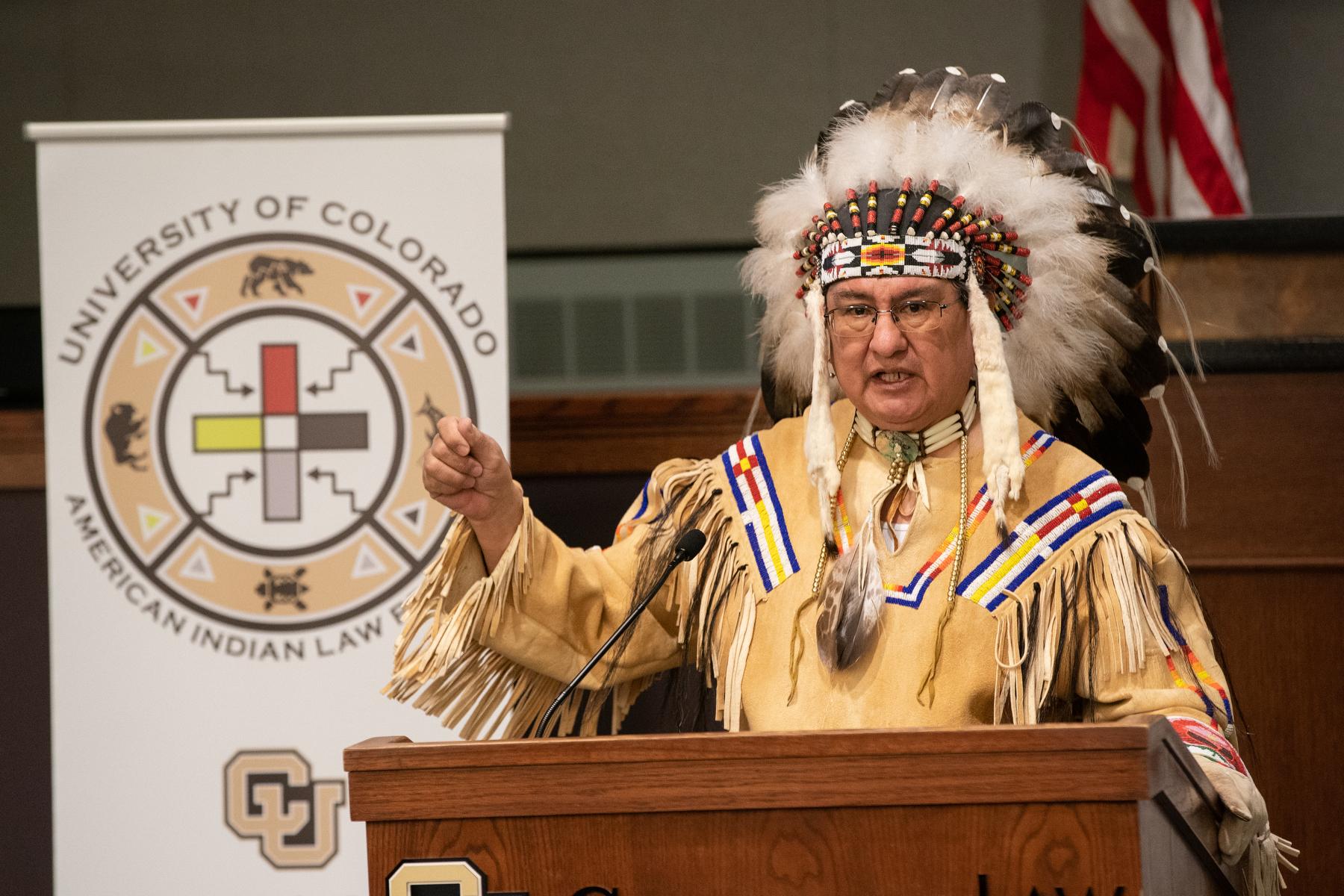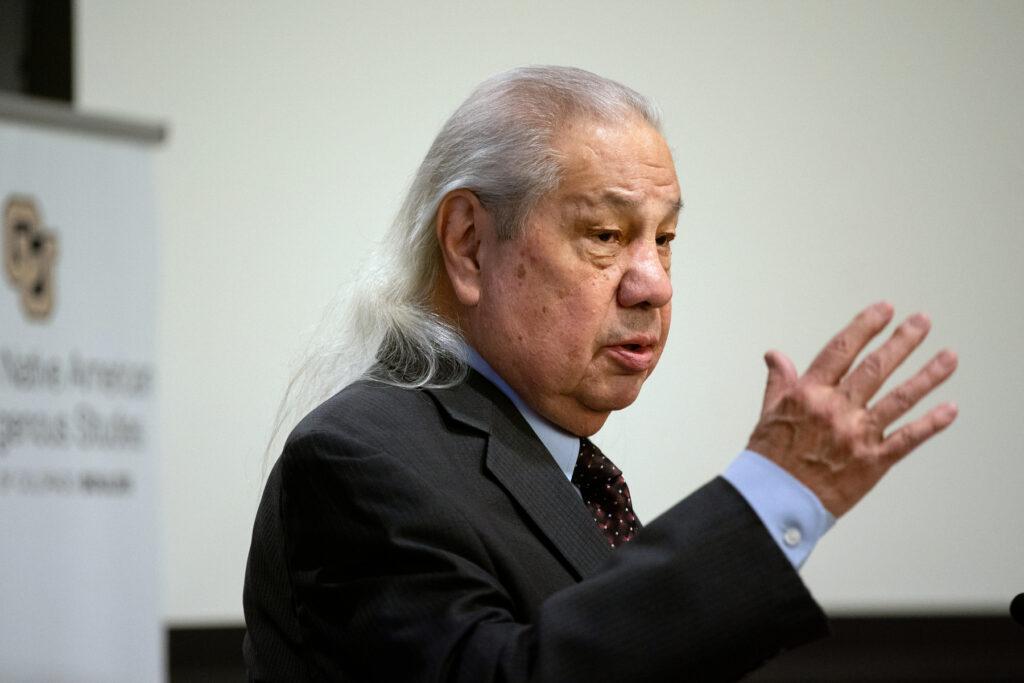
A United Nations panel will spend the next two days at the University of Colorado Boulder discussing Indigenous populations across the globe and those communities’ relationships with “greening” economies.
The United Nations Department of Economic and Social Affairs holds its Expert Group Meeting on Indigenous Issues once a year. This year, the meeting was scheduled to take place in Guatemala, but political circumstances in that country forced the U.N. to look elsewhere.
Kristen Carpenter, Council Tree Professor of Law and Director of the American Indian Law Program at the University of Colorado Law School, said U.N. officials reached out to her and the university in hopes they could hold it on seven weeks’ notice.
“It wasn't the kind of opportunity that we could say no to,” she said. “And I'm so glad that we said yes.”
U.N. staff, ambassadors, politicians, and academic experts from around the world are part of the gathering. The group will discuss Indigenous peoples’ relationship with the environment and whether those communities are being included in attempts to make the economy more eco-friendly and sustainable.
“Because we're trying to deal with a climate that affects everybody, including and to a greater degree Indigenous peoples. So the question is, as we do this, how are Indigenous peoples part of that equation? And it raises some really important questions,” said Keith Harper, an independent expert on the permanent forum and a citizen of the Cherokee Nation.
One topic the forum will discuss is the mining of lithium, a chemical often used for rechargeable batteries, like those in cell phones and electric vehicles.
“Here in the United States, lithium mining often occurs or is proposed to occur, on Indigenous people's lands, thereby violating those rights,” Carpenter said. “So how do we ensure that the greening economy moves forward without further violating the rights, the livelihoods, the cultures of Indigenous peoples?”
During the opening ceremony, Ute Mountain Ute Chairman Manuel Heart spoke to the several dozen in attendance. He spoke about how Indigenous cultures value future generations, and seek to protect the land for their benefit.
Heart found significance in the United Nations bringing a forum on Indigenous issues to Colorado, a state with historic ties to at least 48 Native American tribes.
“Usually they hold it in different countries. Mainly the United Nations is held in Geneva, Switzerland, or New York,” Heart said. “But today, we have the honor to have them come here to Colorado, to the Ute people's aboriginal lands.”

Following the meeting, the forum will publish a report that includes recommendations for policymakers. Harper said a unique challenge they face is ensuring the report includes the perspective of all Indigenous peoples, not just those in the United States.
“What is experienced by Mapuche Indians in Chile may be fundamentally different from what is experienced by Navajo Indians in Arizona and certainly different from Indigenous peoples of Burundi in Africa,” Harper said. “So [the forum] is about how do we gather the experience from these different communities, distill them into lessons learned, best practices, and then communicate that in an understandable format in a U.N. report.”
The conference runs through Thursday.









